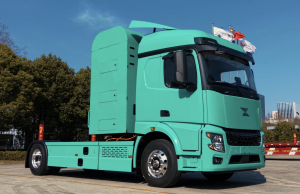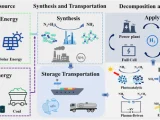
Horizon Fuel Cell Group to Supply 100 Hydrogen Fuel Cell Systems for 1,500km Zero-Emission Trucks in China
July 15, 2025Horizon Fuel Cell Group is gearing up to supply 100 VL-III Series hydrogen fuel cell systems to Shanghai Wuliu Automotive Technology, with delivery set for July 14, 2025. These cutting-edge systems will be used to power a new line of 42-ton hydrogen-powered trucks developed by Z Truck Automotive Technology. And get this — each truck is designed to travel more than 1,500 kilometers on a single tank of hydrogen. That’s a game-changer for the heavy-duty trucking world and a huge move toward cleaning up China’s transport sector.
Hydrogen Tech Tackles Long-Haul Challenges
This partnership isn’t just about new trucks — it’s part of a bigger push by China to slash transport-related emissions using zero-emission technology like hydrogen fuel cells. These new trucks take aim at two of the biggest hurdles in long-haul freight: range anxiety and commercial feasibility. The VL-III stack that powers them has already proven itself on a global stage, and a next-gen VLS-IV 400kW stack — with even better efficiency — is already in the pipeline.
Hydrogen Storage Gets a High-Tech Boost
On top of that, the trucks will use advanced Type IV hydrogen storage tanks, which not only improve safety but also help keep the trucks light and maximize payloads. It’s clear that every detail of the design is focused on making this tech practical, reliable, and ready for real-world logistics.
A Win for China’s Climate Goals — and Maybe the World
This isn’t just a win for the companies involved — it’s a strong signal for the entire industry. The deal aligns perfectly with China’s push to ramp up its hydrogen infrastructure and accelerate the shift to new energy vehicles (NEVs). As these trucks start hitting China’s key logistics corridors — especially those where stricter climate rules are already in play — there’s a good chance we’ll see more fleet operators and investors jumping on board. In the long run, this kind of progress could help fuel global momentum toward making fuel cell technology a bigger part of the clean energy solution.



 With over 15 years of reporting hydrogen news, we are your premier source for the latest updates and insights in hydrogen and renewable energy.
With over 15 years of reporting hydrogen news, we are your premier source for the latest updates and insights in hydrogen and renewable energy.